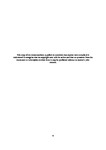An Investigation Into Developing The Mathematical Achievement for Foundation Students in Kuwait
| dc.contributor.supervisor | Sharp, Jenny | |
| dc.contributor.author | Hammad, Sali | |
| dc.contributor.other | School of Engineering, Computing and Mathematics | en_US |
| dc.date.accessioned | 2019-11-12T14:12:18Z | |
| dc.date.available | 2019-11-12T14:12:18Z | |
| dc.date.issued | 2019 | |
| dc.date.issued | 2019 | |
| dc.identifier | 10525026 | en_US |
| dc.identifier.uri | http://hdl.handle.net/10026.1/15139 | |
| dc.description | File embargoed until 31.12.9999 (at author's request). | |
| dc.description.abstract |
Kuwait’s educational leaders have been putting efforts into improving their educational systems for the past 30 years. However, Kuwaiti students have performed in lower percentiles, in comparison with other countries, in international testing projects such as the Trends in International Mathematics and Science Study (TIMSS). This study investigated the development of a new framework that could improve students’ mathematical achievement for freshmen students at an American university foundation program in Kuwait. The framework is based on exploring approaches that can improve students’ mathematical self-efficacy, motivation and understanding. The study explored students’ mathematical backgrounds, self-efficacy, motivation, and mathematical understanding during the course. The study was divided into four stages (0 to 3). Students were asked to answer the background, self-efficacy, and motivation questionnaires at stage 0 of the study. They also answered a level quiz that examined their previous mathematics knowledge. They were also asked to draw concept maps for analysising and explored their conceptual understanding of their previous mathematical knowledge. For the stages (1 to 3), the students completed the self-efficacy and motivation questionnaires, drew concept maps, and took three major tests (Test 1, Test 2, and Test 4). Also, a sample of the students was interviewed at the end of the course. The study analysis from stage 0 revealed that many students participating in the study graduated from the school system with low self-efficacy and motivation levels towards studying mathematics, which may not have been helpful for their future studies. The study also found that the students were mathematically-procedurally driven more than conceptually and that they found it difficult to apply the mathematics knowledge that they acquired at school. During the course, the researcher applied educational approaches that students had not been exposed to during their high school nor previous college mathematical courses. The educational approaches included group work, gamification and puzzle sheets, revision notes, small boards, and correcting the students’ own errors, online homework, and social media (WhatsApp) group application (outcome). The researcher used these educational approaches to develop the ‘Successful Mathematics Implementing Classroom’ (SMIC) framework. The SMIC framework explained how the approaches from the relevant literature used could improve students’ mathematical self-efficacy, motivation, and mathematical understanding in order to improve students’ mathematical achievement. The students participating in the study showed noticeable improvements in their self-efficacy, motivation, and mathematical understanding levels during the course, most noticeably from stages 0 to 1. Also, the students showed a major improvement in their test scores especially from stages 0 to 1. There was a positive correlation between students’ self-efficacy and their test scores as well as a positive correlation between students’ motivation and their test scores in this study. Concept maps analysis showed improvements in the students’ conceptual understanding during the course. The students’ interviews confirmed that each educational approach used in the course had positively influenced students’ self-efficacy, motivation, and their mathematical understanding during the course. This improved students’ mathematical achievement at the end of the course. The study provided different recommendations for school and college educators such as using the SMIC framework or other similar frameworks that focus on improving students’ self-efficacy, motivation, and mathematical understanding in order to improve their mathematical achievement. | en_US |
| dc.language.iso | en | |
| dc.publisher | University of Plymouth | |
| dc.rights | Attribution-NonCommercial-NoDerivs 3.0 United States | * |
| dc.rights.uri | http://creativecommons.org/licenses/by-nc-nd/3.0/us/ | * |
| dc.subject | self-efficacy, motivation, mathematical Understanding, mathematical achievement | en_US |
| dc.subject.classification | PhD | en_US |
| dc.title | An Investigation Into Developing The Mathematical Achievement for Foundation Students in Kuwait | en_US |
| dc.type | Thesis | |
| plymouth.version | publishable | en_US |
| dc.identifier.doi | http://dx.doi.org/10.24382/976 | |
| dc.rights.embargodate | 31/12/9999 | |
| dc.rights.embargoperiod | No embargo | en_US |
| dc.type.qualification | Doctorate | en_US |
| rioxxterms.version | NA |
Files in this item
This item appears in the following Collection(s)
-
01 Research Theses Main Collection
Research Theses Main



